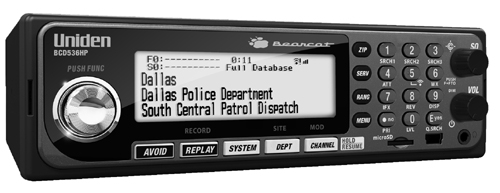 People use police scanner radios for a variety of different purposes and reasons to monitor communications in their area over public radio broadcasts. The types of transmissions they are able to listen to does depend on the make and model of the scanner radio, as transmissions may be communicated over an analog trunking system, conventional analog system, or digital system.
People use police scanner radios for a variety of different purposes and reasons to monitor communications in their area over public radio broadcasts. The types of transmissions they are able to listen to does depend on the make and model of the scanner radio, as transmissions may be communicated over an analog trunking system, conventional analog system, or digital system.
- Crimes: People can discover what current criminal activity is going on in their neighborhood or city. Do keep in mind, initial communications about a crime in progress do not necessarily mean there is an actual crime until the police investigate a call.
- Fire: Listening to scanner radios alerts you to fires in your town. You are able to use this information to determine whether you need to evacuate your home and be prepared, should the fire department ask you to leave.
- Weather: People use police radio scanners to monitor communications about severe weather in their location. Many scanner radios operate off of batteries and allow you to continue monitoring weather updates, even in the event you lose power.
- Traffic Information: Use your radio scanner to find out where there is heavy traffic congestion, accidents, and other delays in your city.
- FRS/GMRS Transmissions: Listen in on both of these public broadcast systems and pick up communications over walkie-talkies and other short range devices.
- NASCAR Racing: Hear what your favorite drivers are communicating with their pit crews during live NASCAR racing events with a scanner radio from your seat in the stands.
- Over the Road Truck Drivers and RVers: Always be in the know of what is going on as you travel from one location to the next with scanner radios. Police scanners can be programmed with your favorite scanner radio codes for those locations you travel through or visit on a regular basis.
- Homemakers: Homemakers can have peace of mind and know whenever there is a possible break-in or other crime occurring in their neighborhood, as well as have inside information about their neighbors any time police, EMTs, or fire fighters show up at their homes.
- Neighborhood Watches: Portable models allow you to utilize scanner transmissions into your neighborhood watch program and make your neighborhood better prepared against potential crimes.
- Up to Date Information: Scanner radios provide current information so you are always in the know about what is going on in your community.
When selecting a police scanner, remember to verify what types of systems are used in your area. If you intend to use the scanner radio in multiple locations, it is highly recommended you look at digital makes and models. Digital police scanners are capable of picking up all three public radio systems and the scanner frequencies used on each one.
For more information or further assistance in selecting the best scanner radio to fit your needs and requirements, contact us today at 1-800-SCANNER (1-800-722-6637). We offer the option of preprogramming your scanner for you before it is shipped.







